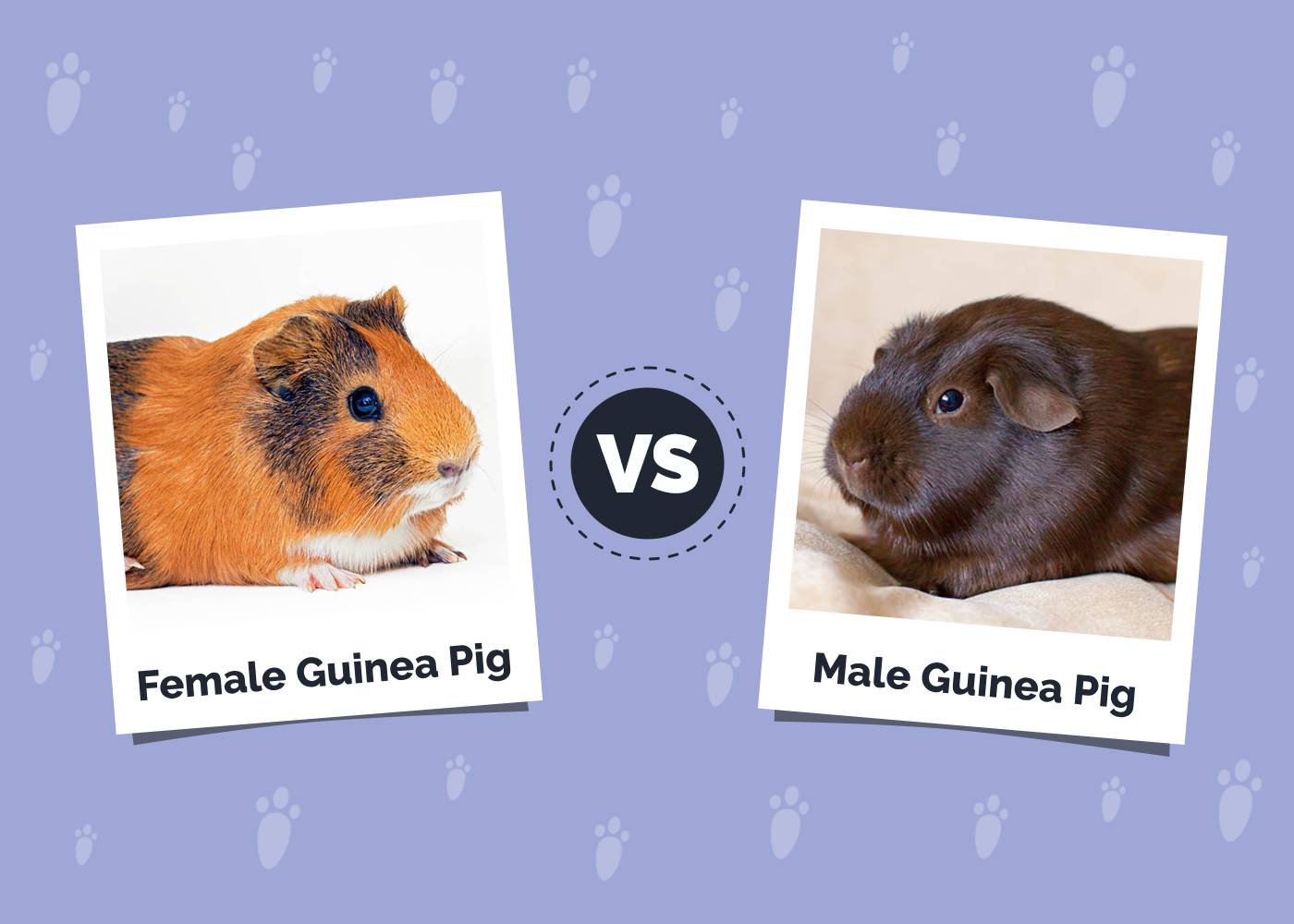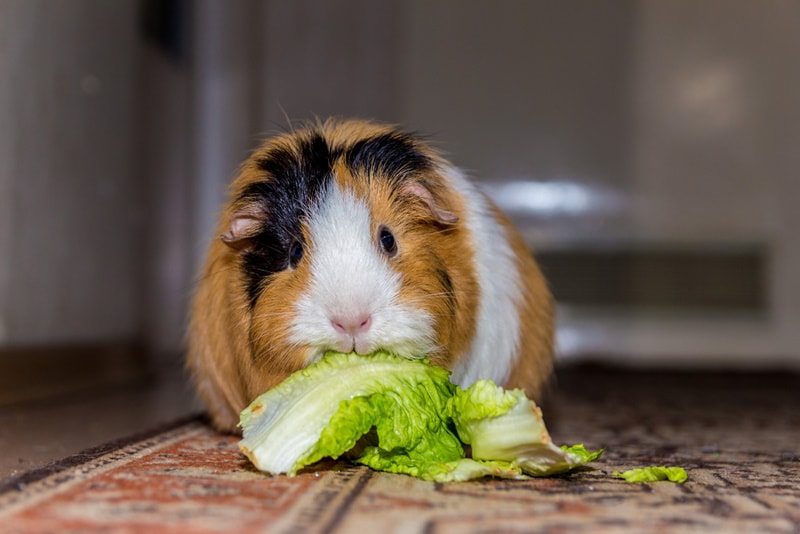Can Guinea Pigs Eat Potatoes? Vet Reviewed Nutrition Facts and FAQ
Updated on

Guinea pigs shouldn’t eat potatoes. There are several underlying reasons for this.
Firstly, potatoes are extremely high in starches. While some starches are okay for guinea pigs, too many aren’t recommended. A diet high in starch may cause obesity, bloating, and other digestive issues.
Furthermore, raw potatoes contain alkaloids. In large amounts, these chemicals can be toxic. Luckily, cooking this chemical breaks it down and makes it easier for your guinea pig to digest. However, it can still cause problems for the guinea pig, which is why it’s often best to avoid potatoes altogether.
What Happens If a Guinea Pig Eats Potatoes?
If your guinea pig snacks on a potato, there are several problems that might occur.
Potatoes in Peru were consumed in high amounts by guinea pigs once upon a time. As a defense mechanism, these potatoes started producing alkaloids. These compounds are pretty harmless to people (we are better at digesting them). However, they’re very harmful to guinea pigs. If your guinea pig consumes too many potatoes, they’ll likely have digestive problems, such as an upset stomach. They may even vomit. In severe cases, death is even possible.
Alkaloids are toxic to guinea pigs, so we recommend avoiding potatoes as much as possible. Plus, even if the potato wasn’t toxic to guinea pigs, it is far too high in carbohydrates. Guinea pigs need a high-fiber diet, and potatoes just don’t fall into that category.
Over time, potatoes can cause obesity and all the health problems that come with that. They aren’t healthy for guinea pigs in the least.
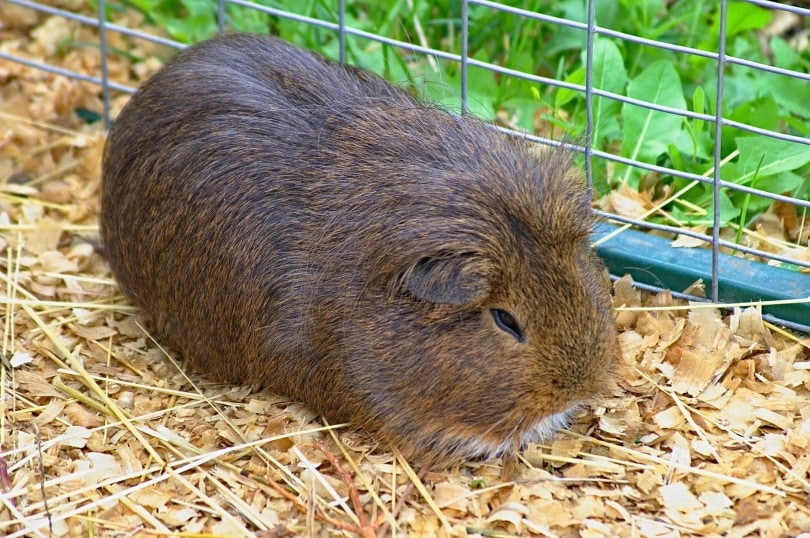
Are Cooked Potatoes Safe for Guinea Pigs to Eat?
Technically, cooked potatoes are safer for guinea pigs to eat than raw potatoes. Cooking the potato breaks some of the alkaloids down, reducing its toxicity to guinea pigs.
However, cooking won’t get rid of all the alkaloids—just reduce them. Therefore, some will be left. Humans don’t have a hard time digesting these remaining alkaloids. However, guinea pigs will. Therefore, while cooked potatoes are less toxic, they’re still considered toxic to guinea pigs.
Are Potato Skins Safe for Guinea Pigs to Eat?
No, guinea pigs shouldn’t be given potato skins, either. They contain the same alkaloids that the rest of the potato contains, making them just as toxic. Furthermore, they contain some other troublesome compounds, too.
They contain high levels of oxalates, which can lead to bladder stones. For this reason, you don’t want to feed your high levels of other foods high in oxalates, like spinach. The oxalates in these veggies can build up and lead to bladder stones.
Of course, you don’t want to be giving your guinea pig potato skins anyway. However, the inclusion of oxalates makes them an even worse idea for your guinea pig.
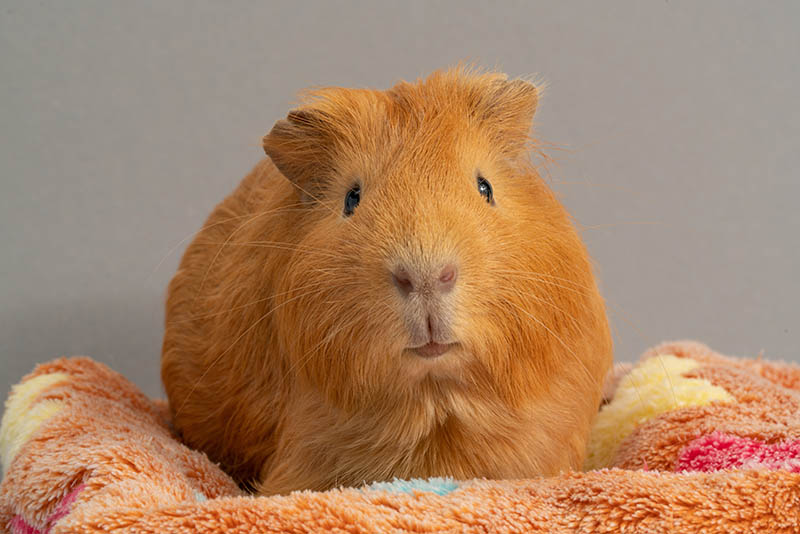
Can Guinea Pigs Eat Sweet Potatoes?
While sweet potatoes are colloquially called “potatoes,” they really aren’t potatoes at all. They don’t contain the same potentially troublesome chemicals that regular potatoes do, so guinea pigs can eat them in moderation.
In fact, sweet potatoes can be healthy for guinea pigs to some extent. They’re still rather starchy, which can lead to obesity if they’re fed a lot. However, in moderation, they may provide some health benefits.
For instance, sweet potatoes are high in vitamin C, which guinea pigs need to thrive. They cannot produce vitamin C as many animals do, so guinea pigs must get enough in their diet. Therefore, guinea pig owners are often encouraged to give their pet plenty of vitamin C-rich veggies.
Sweet potatoes fall into this category. Plus, sweet potatoes also contain lots of potassium. Guinea pigs need this mineral for several body functions. Similarly, to vitamin C, they must get all the potassium they need from their diet.
Sweet potatoes are also tasty, and many guinea pigs like them. Therefore, they’re often a go-to snack for many guinea pig owners.

Are There Any Other Vegetables That Should Be Avoided When Feeding Guinea Pigs?
Yes, there are several veggies that should be avoided when feeding your guinea pig for various reasons.
Here’s a list of all the veggies you shouldn’t feed your guinea pig. Keep in mind that this list isn’t comprehensive.
- Corn
- Dried Beans
- Peas
- Sweet Peas
- Onions
- Onion Grass

What is a Healthy Guinea Pig Diet?
Instead of potatoes, there are several other foods that should be in your guinea pig’s diet.
Guinea pigs should be given an unlimited amount of Timothy hay (or another low-calcium hay). Hay should be offered constantly so that the guinea pig can eat however much they want. This hay provides the fiber guinea pigs need and helps wear down their teeth.
They can be supplemented with a small amount of Timothy hay pellets. These should also be high in fiber. Then, you can supplement their diet with a range of veggies, preferably those that are high in vitamin C. Leafy and colorful greens are recommended. However, lettuce should be avoided, as it is very high in water.
Fruit should be even more limited than veggies, as it is very high in sugar. If your guinea pig consumes too much sugar, it may develop an imbalance in their gut bacteria, leading to a range of side effects. However, high vitamin C fruits may be fed occasionally.
Avoid high-carbohydrate foods, like oats and dry cereal. Guinea pigs do not need that many carbohydrates, and eating too many may lead to obesity. Of course, you should provide fresh, clean water at all times. Be sure to clean sipper bottles daily, and always check for obstructions in the tube, which can prevent water flow. Water bowls aren’t often practical, as the guinea pig will often soil them or knock them over.
All guinea pigs need to be supplemented with vitamin C. They cannot make this vitamin inside their body like most animals. Instead, they must consume all the vitamin C they need in their diet. Supplementation is often recommended, as serious health conditions can occur if your guinea pig is deficient.
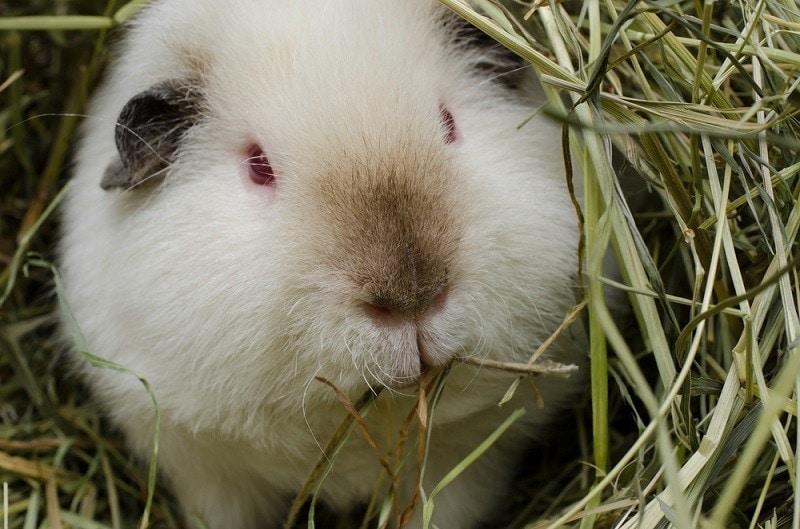
Final Thoughts
Potatoes should never be fed to a Guinea pig, as they are toxic. While their toxicity isn’t particularly strong, it can cause death in at-risk animals. Plus, most guinea pigs that eat potatoes will develop digestive problems, such as vomiting and diarrhea. All parts of the potato are toxic, including the skin.
However, sweet potatoes aren’t technically “potatoes” and aren’t toxic. Guinea pigs can eat a small number of sweet potatoes, which may help them meet their vitamin C requirement. With that said, sweet potatoes are still high in sugar and need to be fed in moderation.
Remember, veggies only make up a small portion of a guinea pig’s diet. While there are several veggies that are safe to feed your guinea pig, they shouldn’t make up the bulk of their diet. Instead, they should consume mostly hay and Timothy hay pellets.


